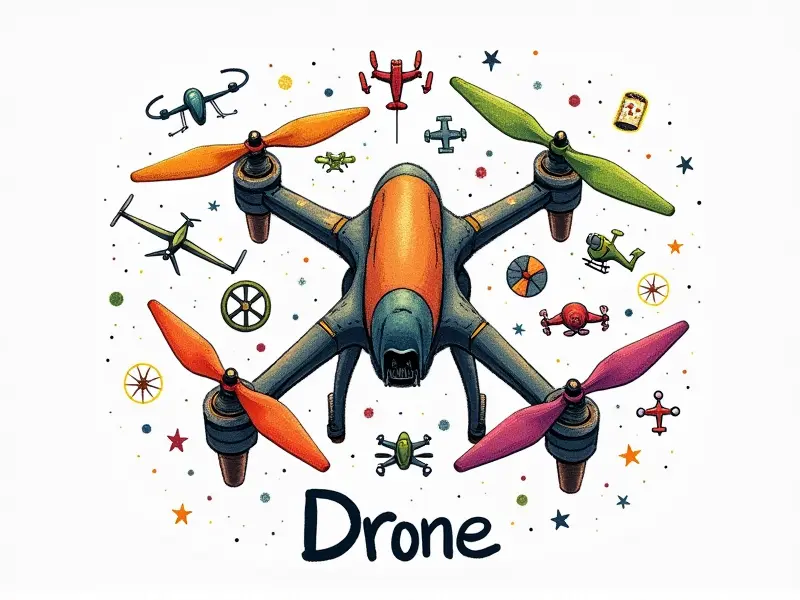Can Li-ion batteries explode?

Lithium-ion (Li-Ion) batteries are the powerhouses behind many of today's high-performance RC models, drones, and quadcopters. However, their popularity comes with concerns about safety, particularly regarding the risk of explosion or fire. This article delves into whether Li-Ion batteries can indeed explode in RC applications and provides essential tips for safe usage.
Are Li-Ion Batteries Safe for RC Models?
Lithium-ion batteries are widely used in RC models due to their high energy density, lightweight nature, and ability to deliver consistent power. However, they come with inherent risks if not handled properly. The safety of these batteries depends on several factors, including the quality of manufacturing, proper usage, and adherence to maintenance guidelines.
Can Li-Ion Batteries Explode in RC Drones?
The possibility of a lithium-ion battery exploding in an RC drone is real but rare if proper precautions are taken. Explosions can occur due to overcharging, physical damage, or manufacturing defects. Understanding these risks and taking preventive measures is crucial for ensuring the safety of your equipment.
Preventing Explosions with Proper Li-Ion Battery Use
- Avoid Overcharging: Always use a charger that has protection circuits to prevent overcharging.
- Handle with Care: Avoid dropping or damaging the battery, as physical stress can lead to internal damage and potential explosion.
- Store Properly: Keep batteries in a cool, dry place away from flammable materials.
Safety Tips: Li-Ion Batteries and RC Quadcopters
RC quadcopters rely heavily on lithium-ion batteries for their operation. Here are some essential safety tips:
- Use Quality Chargers: Invest in reputable chargers that offer overcharge protection.
- Monitor Temperature: Keep an eye on the temperature during charging and discharging to ensure it stays within safe limits.
- Avoid Mixing Batteries: Do not mix old and new batteries or different types of Li-Ion cells in your quadcopter setup.
Understanding the Risks of Li-Ion Batteries in RC Aircraft
The risks associated with lithium-ion batteries in RC aircraft include thermal runaway, which can lead to fires or explosions. Thermal runaway occurs when a battery cell overheats and cannot dissipate heat effectively, leading to rapid temperature increases.
How to Store Li-Ion Batteries Safely for RC Models
Proper storage is crucial to maintaining the safety of your lithium-ion batteries:
- Avoid Extreme Temperatures: Do not store batteries in hot or cold environments.
- Use Battery Bags: Store batteries in fire-resistant bags to contain any potential fires.
- Keep Away from Flammable Materials: Ensure that batteries are stored away from flammable substances.
Exploding Li-Ion Batteries: Myth or Reality?
The myth of exploding lithium-ion batteries is not entirely unfounded. While explosions are rare, they can occur under certain conditions such as overcharging, physical damage, or manufacturing defects. Understanding these risks and taking preventive measures is key to ensuring safety.
Ensuring Safety with Quality Li-Ion Batteries for RC Drones
To minimize the risk of explosion, it's crucial to use high-quality batteries from reputable manufacturers:
- Select Reputable Brands: Choose well-known brands that adhere to safety standards.
- Check Certifications: Look for certifications like UL or CE on the battery packaging.
- Inspect Before Use: Always inspect batteries before use for any signs of damage or wear and tear.
Common Causes of Li-Ion Battery Fires in RC Models
The most common causes of lithium-ion battery fires include overcharging, physical damage, and improper handling. Understanding these issues can help prevent accidents:
- Overcharging: Overcharging can lead to thermal runaway and subsequent fire or explosion.
- Damaged Cells: Physical damage to the battery cells can cause internal shorts that result in fires.
- Inadequate Ventilation: Lack of proper ventilation during charging can increase the risk of overheating.
Risks of Li-Ion Batteries in FPV Racing
FPV racing involves high-speed and high-stress conditions that can exacerbate the risks associated with lithium-ion batteries. Pilots must be vigilant about battery health, charging practices, and storage to prevent accidents.
Preventing Explosions with Proper Li-Ion Battery Care
- Regular Maintenance: Regularly inspect your batteries for signs of wear or damage.
- Battery Monitoring Systems (BMS): Use BMS to monitor battery health and prevent overcharging.
- Proper Disposal: Dispose of old batteries safely according to local regulations.
Conclusion
Lithium-ion batteries are essential for the performance of RC models, drones, and quadcopters. While they do carry risks such as potential explosions or fires, these can be mitigated through proper usage, maintenance, and storage practices. By following safety guidelines and using high-quality batteries from reputable manufacturers, you can enjoy your RC activities with peace of mind.

